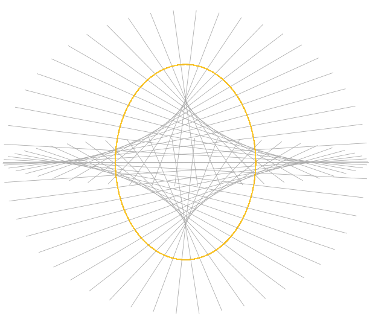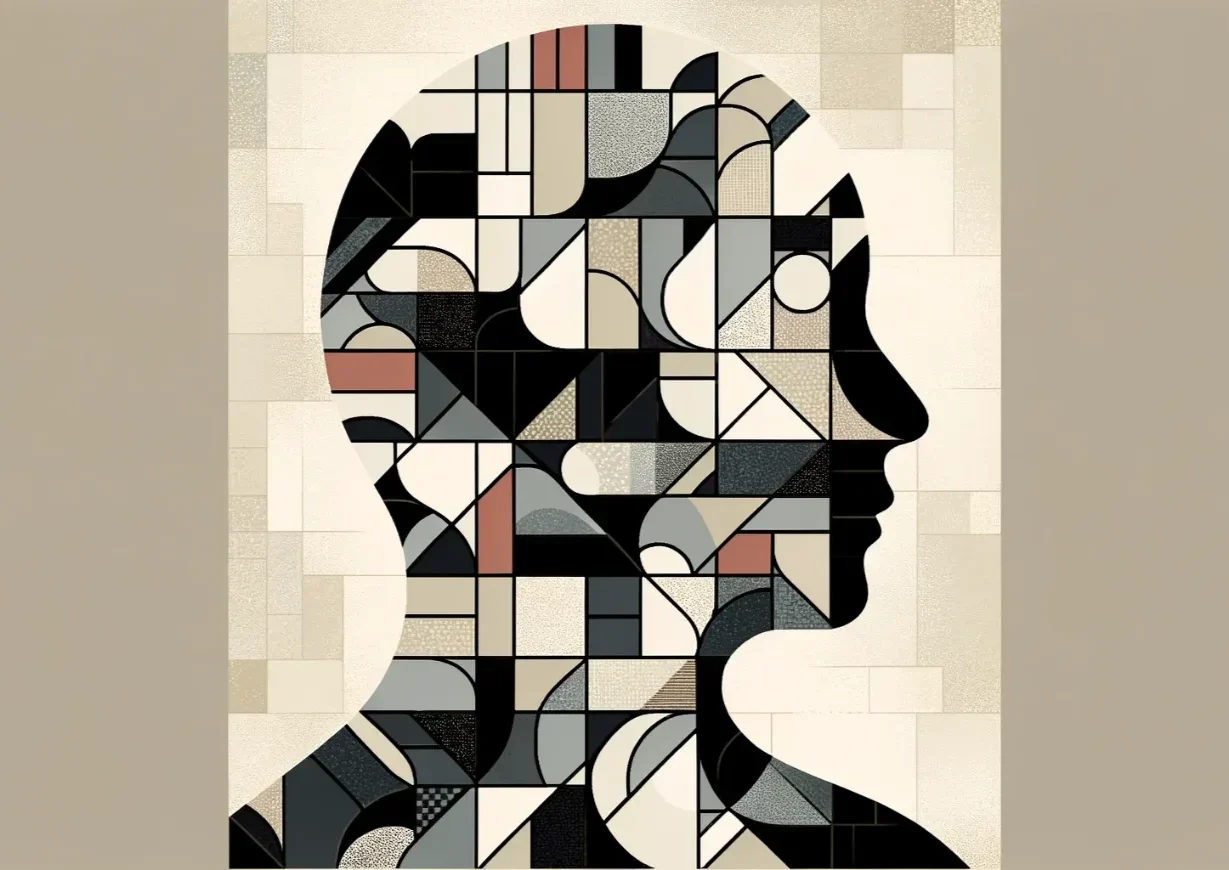About the Author

Patrick Liebl
About the Author

Patrick Liebl
What is this thing called “integration”? The resurgence of interest in psychedelics for mental health and personal growth has sparked a renewed conversation about how these powerful substances can be “integrated” into our lives. At the heart of this conversation lies the concept of “psychedelic integration” which can be seen as an ongoing process of incorporating the insights and experiences gained from psychedelic journeys into our everyday existence. This approach shares profound similarities with Carl Jung’s concept of integrating the unconscious through dream work – both approaches aim for psychological wholeness and self-awareness. So in this article we want to shed some light on the concept of integration – its origins, meanings, and benefits. Let’s dive right in!
A Brief History of Psychedelic Integration
Although humans have been using psychedelics for thousands of years (see the full “History of Psychedelics” here), the idea of psychedelic integration is relatively young. The concept began to develop alongside psychedelic research in the 1950s, but the term “integration” emerged only later, in the late 1970s and early 1980s. Researchers and therapists using substances like LSD or psilocybin for treating various conditions quickly realized that their patients needed support to process and integrate the profound experiences induced by these substances. It became evident that the content of a psychedelic experience was not inherently helpful—and could sometimes be harmful—unless the patient could relate to these experiences and make their content workable.
Various approaches and methods were applied, but it was only during the new wave of psychedelic research in the 1990s that the concept of integration became more structured. The Multidisciplinary Association for Psychedelic Studies (MAPS) was instrumental in highlighting the importance of integration. Their studies on MDMA-assisted psychotherapy for PTSD set new methodological standards for integration practices and helped the concept of integration become broadly accepted as a crucial part of psychedelic-assisted therapy.
Today, a variety of integration methodologies exist. An analysis by Geoff J. Bathje et al. (2022) identified 10 different current integration models that provide a theoretical basis or organizational framework for integration practices, all published after 2017. These models and practices are applied not only by therapists in the context of psychedelic-assisted treatment but also by integration coaches such as myself. An integration coach (which is not a regulated or legally protected profession) works primarily with individuals or groups who seek support for integrating psychedelic experiences outside of a therapeutic or medical context. Often, the purpose of the psychedelic experience and its integration is not to treat any mental or medical conditions but is considered part of a personal or spiritual path of development. This means, integration can have a therapeutic approach but can also happen within the context of personal or spiritual development. Which approach is the right one, depends on the individual and their current state as well as on their intention to go through a psychedelic experience.
But What Exactly Does Integration Mean?
Integration, in the context of psychedelics, refers to the process of making whole or bringing together what is separated. It involves understanding and assimilating the insights and experiences gained from psychedelic journeys and incorporating them into one’s daily life in a meaningful and constructive way. This process is essential for translating the often profound and sometimes disorienting experiences into tangible benefits for personal growth, emotional healing, and self-awareness, and for transforming temporary changes into sustainable changes in one’s life. Without proper integration, these profound experiences can be confusing or even destabilizing and the changes might be temporary, such as a peak experience that is fading into memory after a couple of months.
There are two key perspectives on what integration can mean in the context of psychedelics:
Merging the Mystical with the Mundane
One approach to integration focuses on reconciling extraordinary psychedelic or mystical experiences with the ordinary reality of daily life. This perspective is especially relevant in modern Western societies, where there is often little space for such experiences to be shared or understood. Unlike indigenous cultures, where psychedelic experiences are naturally integrated into communal life through rituals and shared understanding, individuals in modern societies may need deliberate integration practices to relate their psychedelic insights to their everyday lives. This process helps individuals bridge the gap between the mystical and the mundane, allowing them to find meaning and relevance in their psychedelic experiences within the context of their daily routines and societal norms.
Psychological Wholeness and Self-Awareness
Inspired by Carl Jung’s work, this perspective views integration as a process of bringing unconscious material into conscious awareness. Jung used techniques such as dream work and active imagination to help individuals access and integrate unconscious aspects of themselves, aiming for greater self-awareness and psychological wholeness. Psychedelic experiences can similarly bring unconscious elements to the surface, providing a unique opportunity for deep psychological work. To learn more, discover “Psychedelic Shadow Work: Our Journey to Wholeness“.
Through integration, individuals can confront and assimilate these previously hidden or repressed aspects, leading to a process of individuation—becoming more fully oneself by integrating various parts of the psyche. This perspective highlights the therapeutic potential of psychedelics in facilitating profound personal growth and emotional well-being.
By combining these perspectives, we see that integration serves both to ground mystical experiences in everyday life and to promote psychological health and self-understanding. Depending on the person and their intention as well as the context and the content of the experience, one perspective might be more helpful or necessary than the other. But ideally, integration practices combine both perspectives.
Integration Practices: How to Make It Work
Let’s get a little bit more specific by looking at integration practices. Effective integration practices can help individuals make sense of their experiences, ground themselves in their daily lives, and use their newfound insights for personal development. Sometimes, it is only through integration practices that a person can relate for the first time in a meaningful way to the content of their psychedelic experience instead of relating to them as random, dreamlike visuals.
Here are some examples of common integration practices.
Integration Circles
Sharing experiences with others who have had similar journeys can provide validation and collective wisdom. Participating in integration circles or support groups can create a sense of belonging and shared understanding. These discussions allow individuals to hear different perspectives and insights, which can enhance their own understanding and integration process. Being part of a community can also provide emotional support and reduce feelings of isolation.
Journaling
Writing about psychedelic experiences can be a powerful tool for processing and understanding their significance. Keeping a journal allows individuals to articulate their thoughts and feelings, capturing the essence of their experiences. Over time, revisiting these entries can provide deeper insights and track personal growth, helping individuals observe how their understanding evolves and how the psychedelic experiences continue to influence their lives.
Integration Coaching or Therapy
Professional guidance from coaches or therapists trained in psychedelic integration can provide structured support and help to navigate difficult emotions and insights that arise from the experience. A safe and non-judgmental space is offered to explore these feelings and integrate them into one’s understanding of self and the world. Integration coaches and therapists can also offer techniques and strategies to manage any negative aftereffects and to harness positive changes. Learn more about 1:1 coaching at Evolute Institute.
Meditation
Mindfulness and meditation practices can help individuals stay grounded and integrate their insights. These practices foster a state of inner awareness and calm, facilitating the assimilation of psychedelic experiences. Through regular meditation, individuals can cultivate a deeper connection to their inner selves, enhancing their ability to process and integrate the profound insights gained during their psychedelic journeys.
Artistic expression
Creative expression through art can be a powerful way to process and communicate psychedelic experiences—especially when words fail to do them justice. Drawing, painting, or other forms of artistic expression, like collages and sculptures, can capture the ineffable qualities of these journeys. Art can serve as a visual representation of the internal experiences and emotions encountered during psychedelics, making the abstract more tangible and easier to comprehend.
Bodywork and Somatic Practices
Engaging in bodywork and somatic practices, such as yoga, massage, or dance, can also help individuals integrate psychedelic experiences. These practices promote a deeper connection between mind and body, facilitating the release of stored emotions and tensions. By attuning to bodily sensations and movements, individuals can process and integrate experiences on a physical level, complementing the cognitive and emotional integration.
Nature Immersion
Spending time in nature can be a therapeutic and grounding way to integrate psychedelic experiences. Nature immersion helps individuals reconnect with the natural world, offering a peaceful and reflective environment to process insights. The tranquility and beauty of nature can enhance feelings of interconnectedness and provide a space for contemplation and the feeling of wholeness.
These are just a few examples of common integration practices. At Evolute Institute, for example, the main psychedelic retreat program (EvoSHIFT) offers 2 days of integration on-site after the psilocybin truffle ceremony where all seven of these integration pratices are integrated, and then 2 months of aftercare where there are coaching group circles plus 1:1 guidance sessions and where program participants are encouraged to find and refine their personal integration approaches. Some might go for more time in nature, others for bodywork, and again others might take up a daily meditation or yoga practice. Being part of a community like the Evolute tribe helps to remember your experience and your intention for change after the experience and foster a greater commitment to a durable change in life. This is also part of integration support.
What are the benefits of integration practices?
Sometimes it might be tricky to find the right practices because not everything works for everybody. And sometimes professional help or a community of like-minded people are necessary to tap into the full potential of some of these practices. But with some patience and the right support, it won’t take long until the benefits of these practices become evident. Beyond the immediate need to make sense of psychedelic experiences, here are some of the potential benefits that might be achieved through integration:
Enhanced Self-Awareness
Through integration, individuals gain a deeper understanding of themselves, their patterns, and their relationships. This self-awareness is a cornerstone of personal growth and development. By integrating psychedelic insights, individuals can achieve greater clarity and insight into their motivations, behaviors, and life path.
Behavioral Changes
Insights gained from psychedelic experiences can motivate individuals to make positive changes in their lives. This might include adopting healthier habits, improving relationships, or pursuing meaningful goals. Integration helps translate these insights into actionable steps, fostering personal growth and positive transformation.
Emotional Healing
Psychedelic experiences often bring repressed emotions to the surface. Integration practices help individuals process these emotions, leading to healing and emotional release. By facing and working through difficult feelings, individuals can achieve greater emotional resilience and well-being.
Spiritual Growth
For many, psychedelic experiences are deeply spiritual—regardless of their personal beliefs or religious views. Integration can help individuals incorporate these spiritual insights into their daily lives, enhancing their sense of connection and purpose. By embracing and nurturing their spiritual experiences, individuals can cultivate a deeper sense of meaning and fulfillment.
Psychedelic integration is a crucial aspect of utilizing psychedelics for mental health and personal development. Discover the article series on “deep inner work” for a deeper dive. It bridges the gap between the extraordinary and the ordinary, allowing individuals to incorporate profound insights into their everyday lives. Whether viewed through the lens of modern society’s need for connection to the mystical or through Jungian psychology’s pursuit of self-awareness, integration is key to making psychedelic experiences meaningful and beneficial. By embracing integration practices, individuals can harness the transformative potential of psychedelics, fostering psychological growth, emotional healing, and a deeper connection to themselves and the world around them. After many years of supporting people during and after their psychedelic experiences in safe, legal and professional retreat settings, I can personally say that integration is not only the most underrated aspect of the psychedelic journey, but also the most powerful lever for lasting impact. What good is it to just have a peak experience but then not to reap the benefits of feeling, being and behaving differently afterwards in your personal or professional life?

Patrick Liebl,
Lead Facilitator & Integration Expert
Curious to learn more?
We invite you to schedule a call with us. Together, we can explore any questions you may have. We can explore whether a program with a legal psychedelic experience is right for you at this time.
“We are here to support your exploration, at your pace, with no expectations.” – Patrick Liebl





